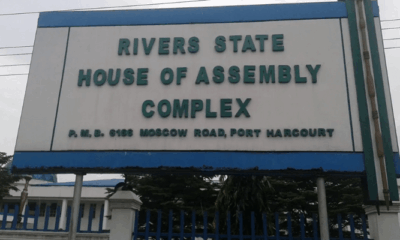Africa
The Dark Side of Social Media: How Fake News and Hate Speech Spread Fast in Nigeria -By Mustapha Abba Kormi
To curb the menace of fake news and hate speech, a collective effort is needed. Individuals must learn to verify information before sharing, journalists should uphold ethical standards, and platforms must improve their moderation systems. Education remains key—teaching young Nigerians how to critically evaluate online content could reduce the influence of misinformation in the long run. Schools, religious institutions, and media outlets can all play roles in promoting responsible digital behavior.

Social media has transformed the way Nigerians communicate, share ideas, and access information. Platforms like Facebook, X (formerly Twitter), WhatsApp, Instagram, and TikTok have become the heartbeat of modern communication in the country. From politics to entertainment, Nigerians use these digital spaces to express themselves and connect with the world. However, behind this remarkable progress lies a growing menace—the rapid spread of fake news and hate speech. These harmful contents have become so powerful that they now shape opinions, fuel division, and even threaten national unity.
The appeal of social media lies in its speed and accessibility. With just a smartphone and an internet connection, anyone can share a story that can reach millions in minutes. This power, while beneficial for awareness and activism, also enables false information to spread faster than verified news. In Nigeria, where trust in traditional media is sometimes weak, people tend to believe what they see online, especially when it aligns with their emotions or preexisting beliefs. The result is a digital environment where misinformation thrives unchecked.
Fake news in Nigeria often takes different forms—from fabricated political stories to health-related hoaxes. During election seasons, for example, social media becomes flooded with doctored videos, false claims, and propaganda designed to manipulate public opinion. In 2023, various misleading posts circulated, accusing political candidates of crimes they never committed or claiming electoral victories before official announcements. Such misinformation not only confuses voters but also undermines democracy and public trust in institutions.
Hate speech is another troubling aspect of social media use in Nigeria. The country’s diverse ethnic and religious composition makes it particularly vulnerable to divisive rhetoric. Online conversations can quickly degenerate into tribal or religious attacks, especially after sensitive national events. Posts that insult or incite hatred against particular groups spread rapidly, often amplified by users who see them as expressions of identity or frustration. This digital hostility sometimes spills into real-life violence, as seen in several communal and political clashes.
One major reason fake news and hate speech spread so easily is the lack of digital literacy among many users. People often share posts without verifying their authenticity, trusting that anything online must be true. In addition, algorithms on social media platforms are designed to reward engagement—meaning that sensational or emotional content, whether true or false, gets more visibility. The more people react, comment, or share, the wider the false information spreads. This creates a dangerous cycle that makes truth harder to distinguish from lies.
The role of influencers and online personalities cannot be overlooked. Many Nigerians rely on their favorite celebrities, bloggers, or social commentators for updates. Unfortunately, some of these figures spread misinformation—intentionally or not—to gain attention and followers. Because of their influence, their posts carry more weight than those of ordinary users, making the impact of fake news even more severe. The result is an online ecosystem where popularity often trumps accuracy.
Efforts to combat this growing problem have been made by both the government and civil society organizations. Initiatives like media literacy campaigns and fact-checking platforms such as Dubawa and Africa Check work tirelessly to expose false claims and educate the public. However, these efforts face challenges due to the sheer volume of misinformation online and the speed at which it spreads. Moreover, government attempts to regulate social media have sometimes been criticized as threats to free speech, creating a delicate balance between control and freedom.
Technology companies themselves also bear responsibility. Platforms like Facebook and X have introduced features to flag false information and remove harmful content. However, their moderation systems often fail to detect local languages, slang, or cultural nuances used in Nigerian online conversations. This limitation means that a large amount of hate speech and misinformation still goes unchecked. More localized moderation and collaboration with Nigerian experts could make a difference.
To curb the menace of fake news and hate speech, a collective effort is needed. Individuals must learn to verify information before sharing, journalists should uphold ethical standards, and platforms must improve their moderation systems. Education remains key—teaching young Nigerians how to critically evaluate online content could reduce the influence of misinformation in the long run. Schools, religious institutions, and media outlets can all play roles in promoting responsible digital behavior.
Ultimately, social media in Nigeria is a double-edged sword. It has the power to unite and educate but also to mislead and divide. The same platforms that give a voice to the voiceless can also amplify lies and hatred. The challenge, therefore, is not to abandon social media, but to use it wisely and responsibly. If Nigerians embrace truth, respect, and critical thinking in their online interactions, social media can truly become a tool for progress rather than destruction
Mustapha Abba Kormi Student of mass communication Kashim Ibrahim University, Maiduguri
























